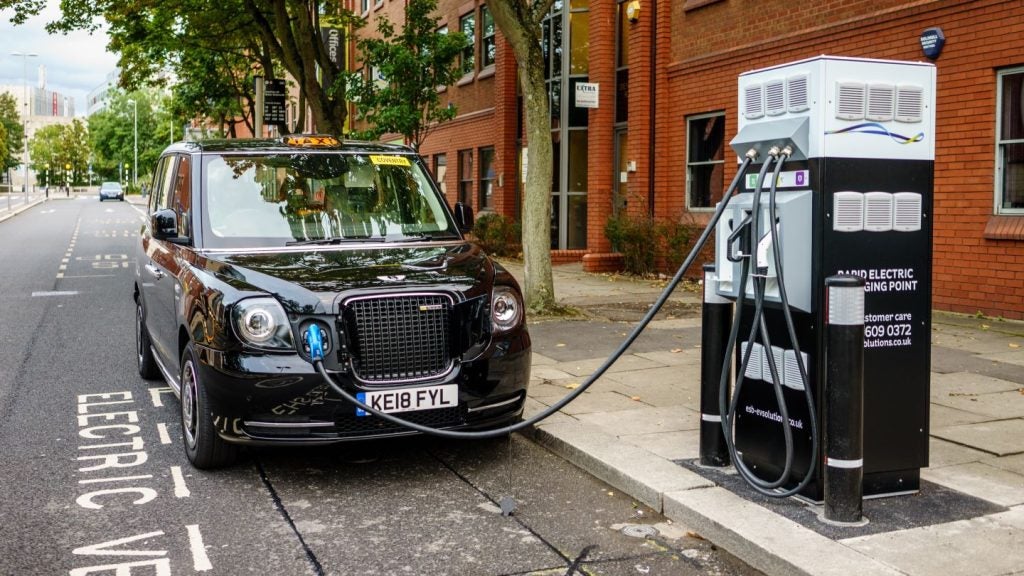
Mike Cobb speaks to two European fleet leasing companies and discovers two quite different markets
Consumer vehicle registrations across Europe are showing signs of recovery as, aided by leasing products and innovative finance models, passenger car fleets have expanded over the past 12 months.
That success story has not been replicated in the commercial vehicle sector. With business confidence in the doldrums, business owners, large and small, are maintaining their fleets rather than renewing.
New vehicle registrations across all classes of commercial vehicles tumbled from the high of 2.6 million across the EU in 2007 to a low of 1.6 million in 2009.
Since then recovery has been slow with the latest full year figures from the European Automobile Manufacturers’ Association showing that by 2012 registrations had only risen to 1.8 million.
France, usually the powerhouse for commercial fleet business in Europe has been particularly badly hit. Registrations have fallen by 17% since 2008 and in the 11 months to November 2013 the market slid another 5.5% year-on-year.
How well do you really know your competitors?
Access the most comprehensive Company Profiles on the market, powered by GlobalData. Save hours of research. Gain competitive edge.

Thank you!
Your download email will arrive shortly
Not ready to buy yet? Download a free sample
We are confident about the unique quality of our Company Profiles. However, we want you to make the most beneficial decision for your business, so we offer a free sample that you can download by submitting the below form
By GlobalDataThe story is much the same across Europe. Germany’s market dipped by 4.3% in the same period, Italy’s by 14.3%. Only the commercial fleets of the UK and Spain held up in those eleven months, with a 10.7% rise in UK registrations and 6.3% in Spain.
But there are glimmers of hope among leasing companies that confidence is returning to business leaders and with that a sign that the market is about to turn a corner.
Leasing Life spoke to two fleet leasing companies, ALD in Belgium and Lex Autolease in the UK to get a snapshot of how the business is changing for two companies operating in quite different markets.
Mike Cobb: What is the difference between Belgium’s commercial vehicle market and others in Europe?
Olivier Fossion, sales director, ALD Automotive, Belgium: In Belgium, we have a large number of small and medium-sized companies, and the management of their light commercial vehicles fleets is still often done in-house. The market is relatively immature, and therefore promising, for full service leasing products.
We can also say that telematics are far from being mainstream in the local market.
MC: What drives the market in an ordinary cycle?
OF: Due to the profile of the LCV-users, this market is subject to overall economic cycles, and more volatile than the company car
market with large multinationals in the services, pharmaceutical or fast-moving consumer goods industries. As for other segments of the freight, services and logistics market in Belgium, taxation changes have a strong influence on the renewal cycles and financing method. However, this legislation seems to be less volatile than in the passenger car segment, as there is no benefit in kind on LCVs, until now at least.
MC: How was 2013 for ALD?
OF: The LCV department has performed well, with some significant commercial successes on specific accounts. We have seen an increase in demand for contract extensions, reflecting the overall uncertainty in the Belgian economy, where companies tend to postpone their investment decisions until the end of the economic crisis gets confirmed.
MC: What do you expect for 2014?
OF: We expect a slight recovery in the economy, which should bring confidence back to businesses to renew their ageing fleets. This will also allow them to take advantage of new technologies, to optimise fuel consumption and CO2 levels. We also expect a more diversified fleet than in the past, where fuel types will be selected depending on usage. In the past, the Belgian market was flooded by diesel engines.
MC: What about regulation in Belgium. Is it a good environment? And do you see any changes on the horizon?
OF: Under pressure from the European Union and the 2020 deadlines to reduce CO² emissions, we’ll see an evolution in our tax system which links tax deductibility to CO2 levels. However, until now, the LCV-segment has seen a limited impact, maintaining a stable tax regime, without penalising activity. The government has recognised the importance of the SME segment for the national economy, and avoided negative impacts on their working tools.
MC: Have the past difficulties with the euro crisis caused any long-term effects on the Belgian market besides a drop in new business?
OF: On the one hand we have seen an increase in average contract duration for certain customers, who are avoiding new long-term engagements as their own business future is unclear.
On the other hand, we have seen an overall increase in bankruptcies and other companies reducing their fleet sizes to cope with the reduced activity.
From a positive point of view, it has led to a professionalisation of the market, as credit risk has become a reality again, and lessors were pushed by their customers to find new cost saving opportunities and creative solutions to optimise their fleets.
Finally, a number of companies have re-evaluated their capital investment projects, as well as their financing methods. In the less mature LCV market segment, still dominated by outright purchase and financial leases, this has created several opportunities for full service leasing suppliers who are specialised in this type of assets and related service needs.
MC: What are your hopes and fears for the future?
OF: Our hopes: a quick recovery of the economy and a sustainable economy allowing us to set long-term management policies and boost our LCV business.
Our fears: By introducing, too fast, overly ambitious CO² standards, and without government incentives, LCVs could have a
sudden rise in purchase price, given the cost of technology such as hybrids, or electric vehicles.
As a side effect, companies could be tempted to prolong usage of their existing vehicles, with the risk of increasing substantially the actual total cost of ownership (maintenance costs, immobilisations, fuel consumption).
MC: How are things in the UK commercial vehicle market and where are the differences between the UK’s commercial vehicle market and others in Europe?
Marcus Puddy, commercial vehicle director at Lex Autolease: For Lex Autolease the CV market is quite buoyant. Registrations are up and our fleet has increased by 5% in 12 months. So things are looking good in the commercial world and looking good for the UK market. And people have obviously got confidence to replace their vehicles. And business is very much the light side and very much below 2.5 tonnes
You ask what’s the difference between the UK and other European markets. One huge difference is in the UK we tend to design individual vans rather than supply them already racked out. So we do this completely differently to how Europe does it.
If you went into a dealership in Europe you would buy a van with racking already designed for you, whereas here you buy a van and then we design what goes in the back of it.
And nine times out of ten we do that individually for each customer’s van.
MC: What’s prompting that move to broad types here?
MP: For our customers it’s cost. If you’re talking to van drivers, they want all the bells and whistles. If you’re talking to corporate customers they want the best van at the cheapest price that can undertake the role. So there’s always a challenging conflict of interest between the driver, the corporate and what we’re trying to deliver. By the end of the day we seem to get to a position with all our customers where the driver and the end-using company are happy with the solution we provide. And we try to get to a position where customers all have a number of solutions they can pick from that don’t have to be continually re-engineered.
MC: What drives the market in the UK?
MP: Mainly replacements, so it’s a replacement cycle that drives this market. At the moment there’s quite a pent-up demand, given the low number of LCV registrations we’ve had over the last three to four years, where a lot of customers have extended, extended, extended. I think we’re starting to see the fallout of that – where people are not looking to extend, and starting to replace a large number of vehicles.
MC: What has changed recently?
MP: I think it’s just the economy. The general economy has started to move at a pace which gives our end-users confidence to say actually, now we’re ready and we have the budgets. They had the budgets before, but I think they were just loathe to spend them. Whereas now they want to spend to invest, and to recoup that investment.
MC: What do you expect for 2014?
MP: For Lex Autolease it’s going to be a very busy year. We’re going to launch a couple of things in the market.
One will be our driveaways, which is a pre-designed vehicle. Basically its a fuel-to-go product at very competitive rates. We’re looking for that to go ahead this quarter. We are extending our capability within what we call ‘business critical’, which means we will be able to provide more help to customers who need their vehicles on the road 24/7. So 2014 is going to be a very busy year. As I said, we expect growth, both for the fleet and from a prosperity perspective.
So we expect another 5% growth. And, as we grow as a business, we will recruit additional people.
MC: What about UK regulation, is it too tough?
MP: Do I think it’s too hard? No, I don’t actually. I think we have to have a balance, but for me it’s important to understand what regulation is coming in.
As long as you have a clear understanding, companies like Lex Autolease and other leasing companies will be able to articulate what it means to end-users. I think if we can be clear and concise about that, then actually the regulations coming in in 2014 are not that bad.
MC: How was the UK market touched by the euro crisis?
MP: All I can say is we have had the opportunity for great deals from the manufacturers, purely because of the eurozone. The pound has been quite strong, and this meant we have had the opportunity to help our customers negotiate some good deals with those manufacturers. So, for me, I don’t think it’s been a disadvantage for the UK. In fact I think it’s been an advantage
MC: What are your hopes and fears for the future.
MP: I hope the SME market will again start to prosper, which I think it’s started to do, but to do so even more. And I hope large corporates get their faith back in finance houses. And I hope we start having conversations with companies about how we can help them with their fleets. So I think there are more hopes than fears and I don’t think we should have any fears about what the market holds. I hope that, as we prosper in the UK, that will present opportunities, and that everybody will be out there looking for those opportunities.







